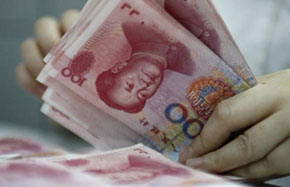SOEs told to beef up scrutiny
Ministry's new guideline tightens up requirements on a slew of measures
China has tightened scrutiny of overseas investment by State-owned enterprises, ordering them to improve investment decision-making, strengthen internal auditing and carry out responsible due diligence, according to a guideline issued by the Ministry of Finance on Wednesday.
The SOEs are required to set up proper decision-making systems and to carry out financial feasibility studies on overseas projects before making any investment decision. They are also ordered to send on-site inspection and auditing teams to evaluate overseas projects that involve major losses and risks, the guideline said.
Companies are also asked to better manage their capital flow, cost control, dividend distribution, foreign exchange and financial information for their overseas projects. The ministry also required SOEs to set up an evaluation system on overseas investment and increase accountability of poor and failed investment decisions.
The guideline is aimed at strengthening the management of SOEs' overseas projects, increasing investment efficiency and lifting State capital's capability to serve the "going global" strategy and the Belt and Road Initiative, the ministry said in a statement published on its website.
Poor asset quality, weak profitability and low investment returns are the main problems related to SOEs' overseas investment and they are directly related to SOEs' poor management of financial risks and careless decision-making, the ministry said.
Xu Baoli, director of the research center at the State-Owned Assets Supervision and Administration Commission, said the move is of "great significance" as the country is pushing the Belt and Road Initiative that will involve massive SOE investment in countries and regions with high political and economic risks.
"Greater outbound investment by SOEs is going to take place and many of them lack the ability to properly manage risks," Xu said.
"And the lack of accountability of senior executives for poor or failed investment is one of the reasons that lead to radical decision-making and loss-making deals."
The tighter regulation on SOEs' overseas investment also showed the government's intention to address the declining foreign exchange reserves and contain cross-border financial risks, Xu added.
China's non-financial outbound direct investment fell 45.8 percent year-on-year to $48.19 billion in the first half of the year, the first decline since 2015, official data showed, as the government moved to curb radical and risky investment by Chinese companies in sectors such as property, hotel, sports and entertainment.

























